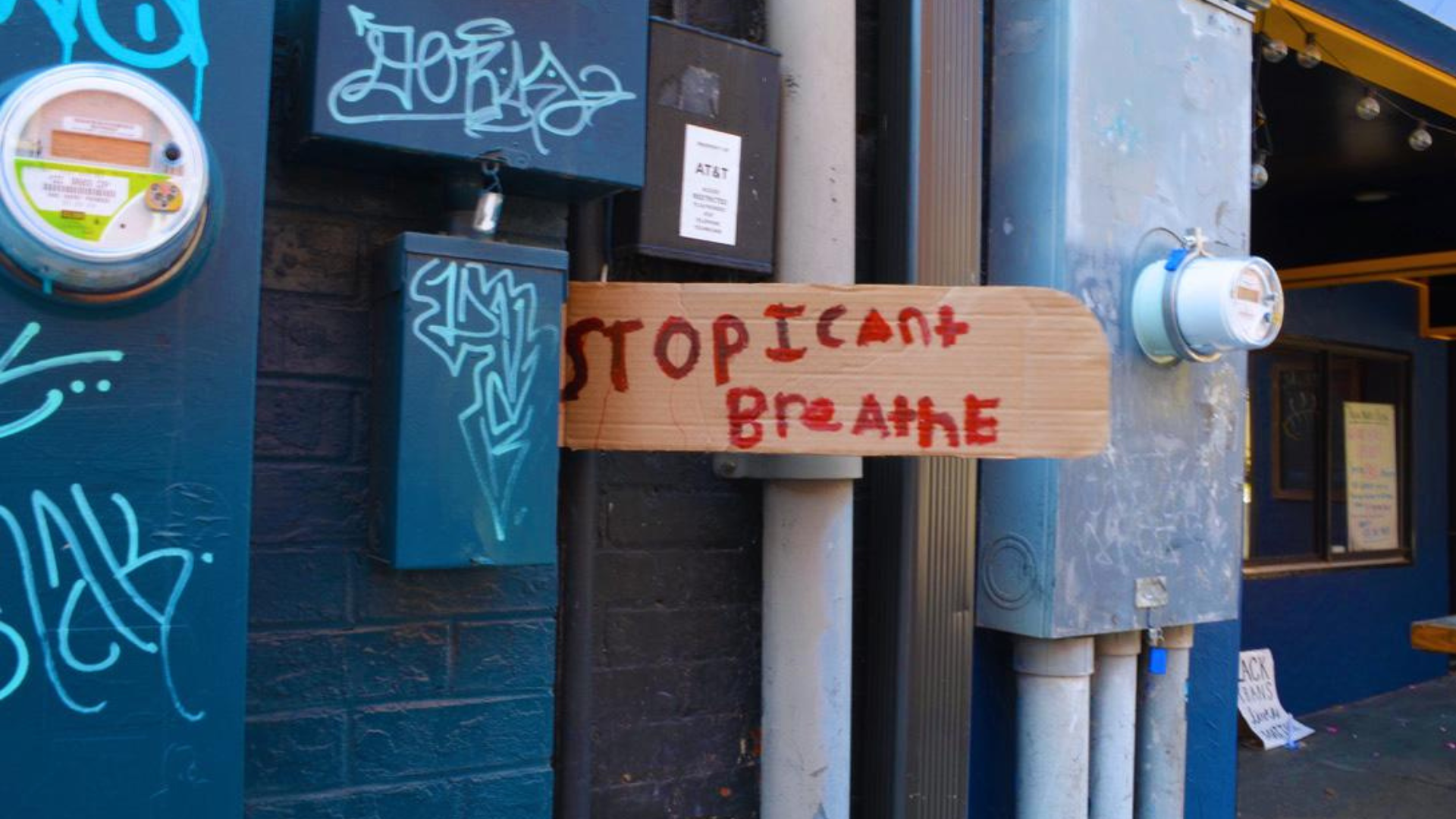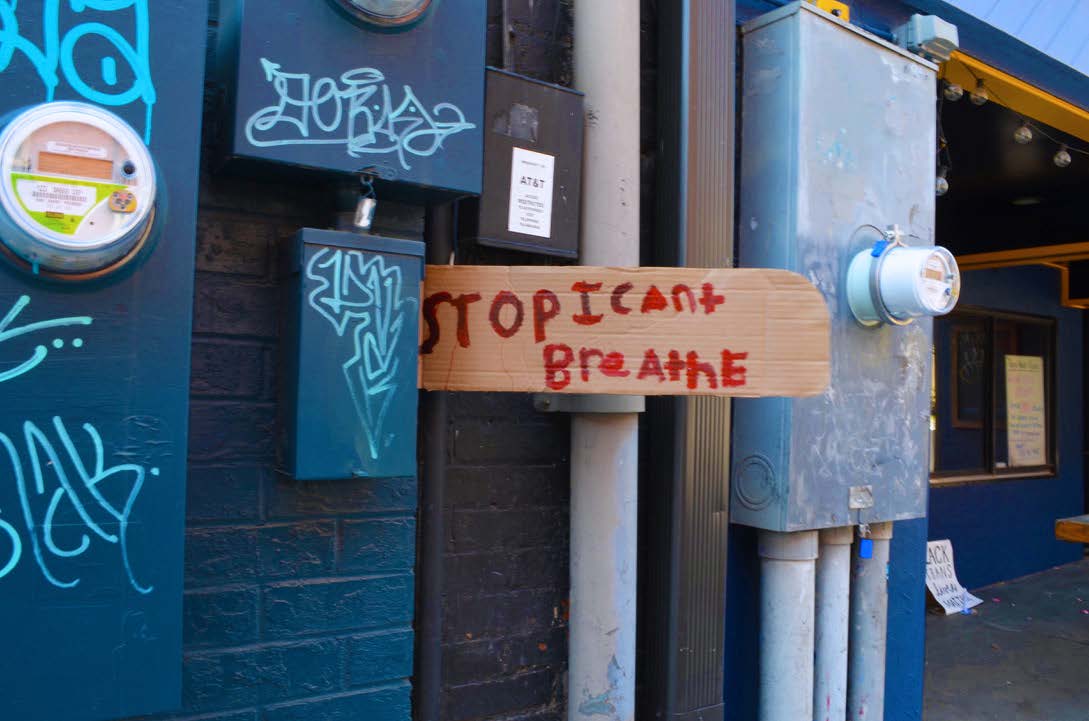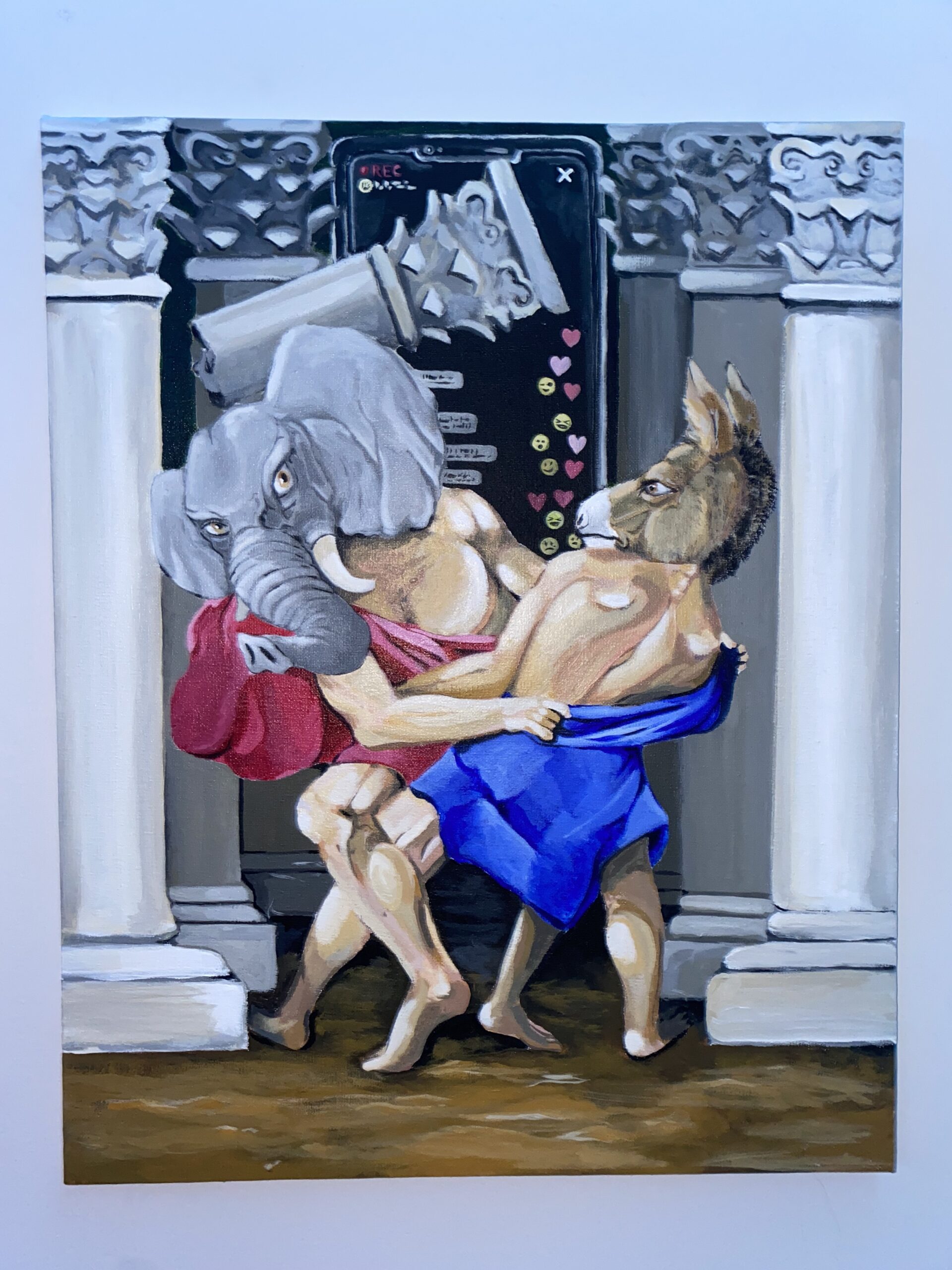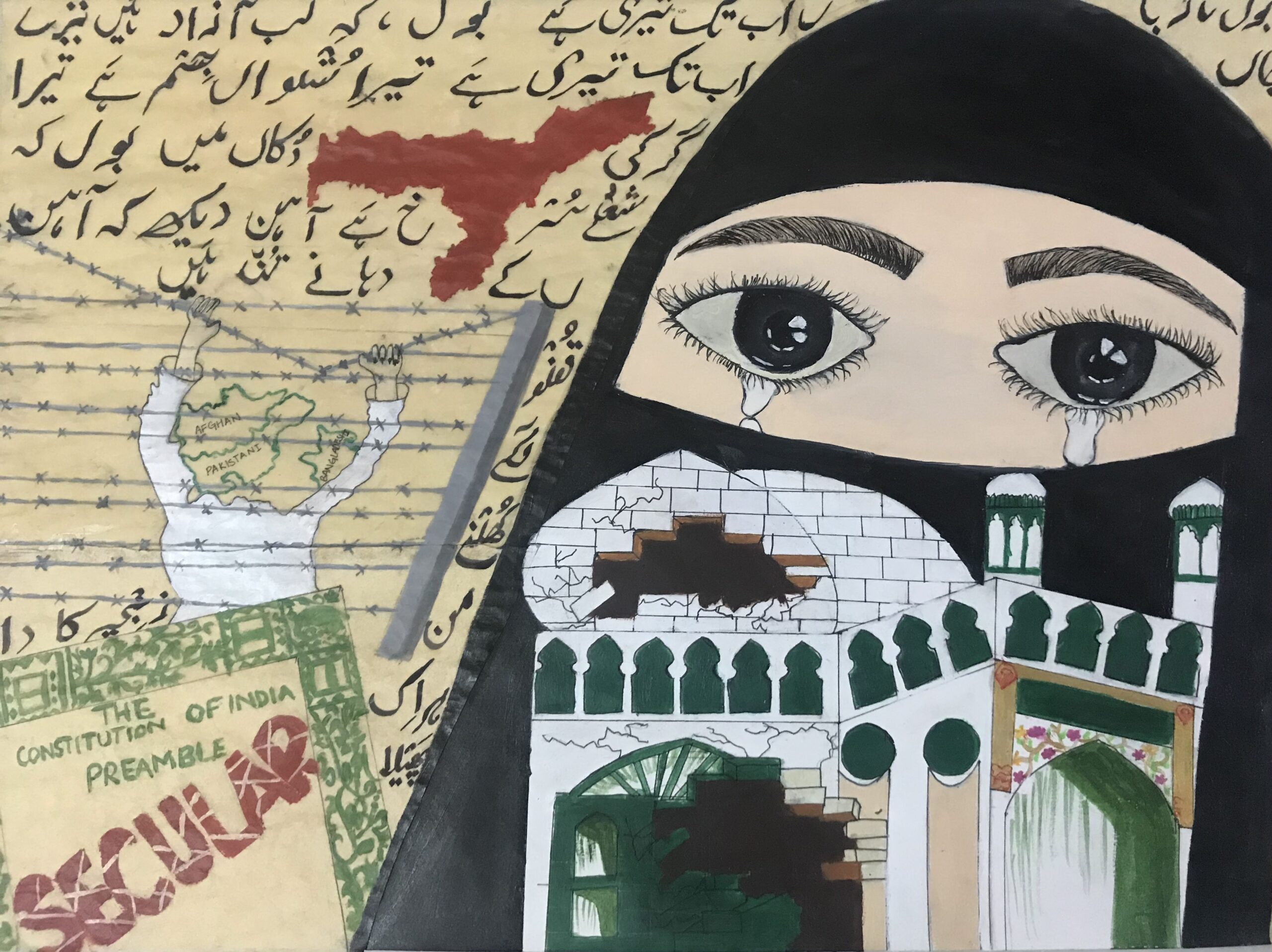Discourse for Democracy
This year, the Polis Innovation Accelerator invited all Duke undergraduate, graduate, and professional students to put their creative talents to work offering original creations that reflect the theme: “Discourse for Democracy.”
Extreme polarization--or intense division and distrust resulting from people’s opposing opinions on various issues--has become a prominent feature of our political landscape. While diverse perspectives and healthy debate are integral to a well-functioning democracy, the disunity and even violence that extreme polarization can generate pose a serious threat to democracy. The arts offer a powerful mechanism for promoting meaningful political discussion and helping people find common ground.
Read on to see our finalists and their work!
IA Art Competition Finalists
Visual Arts Category
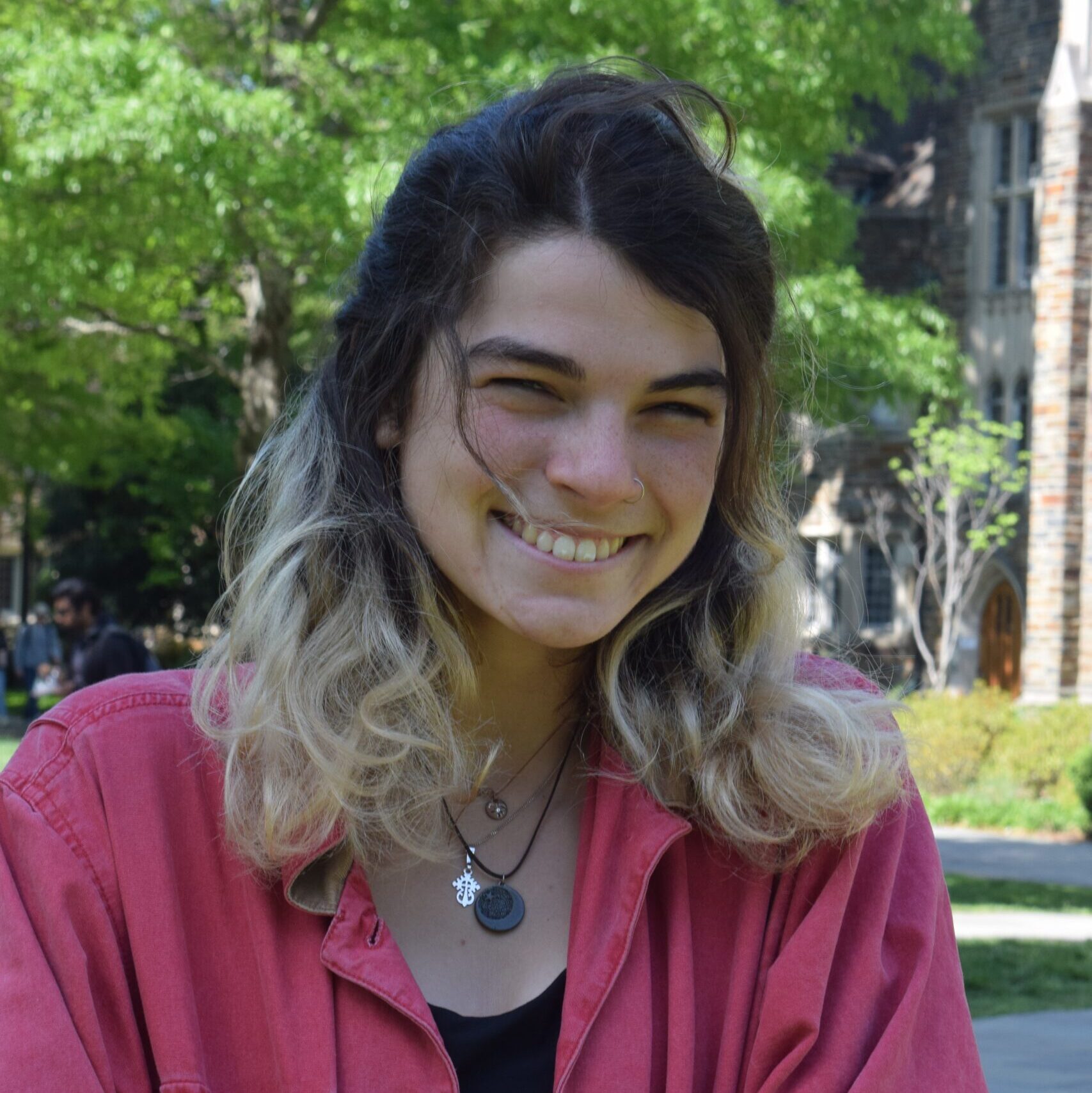
1st Place Winner
Lizzy Kramer (PPS '22) for "STOP"
This piece was taken in Asheville, North Carolina, following the BLM protests in reaction to the murder of George Floyd. I think this moment in time taught us as a nation the importance of art as a form of mediation as people took to the streets across the US to protest. However, people who don't want to hear the arguments of those protesting can ignore, can look away and not interact with protestors. But what they can't ignore, is the art that protestors left behind, becoming permanent parts of the city's landscape through painted windows and store fronts which appeared in many cities at the time. I think this shows the power of art to speak through sight when no one is listening with their ears. I think of the "STOP" in the photograph as a warning. Not just a warning for Derek Chauvin , but a warning of the danger of when people stop listening to each other. The colors in this photo also capture historically American colors, hinting at the relevance of this message to our country at this moment in time.

2nd Place Winner
Carsten Pran (‘22) for “Livestream"
"Livestream" reimagines the Renaissance painting "Two Wrestlers" by Cezare Fracanzano as a present-day fight between the mascots of the Republican and Democratic parties as they grapple and tear at each other's robes. In the background, a towering smartphone relays live footage of the fight, and its viewers respond in a deluge of ephemeral reactions and comments. For me, this scene encapsulates a transition of political discourse into a digital realm whose currency is clicks, reactions, and buzz. Compared to in-person discussions or structured debates, this discourse is extremely rapid and unbridled: those who get their point across must be the loudest, most persistent, or the most shocking. In this environment, it is quite easy to feel unheard or forgotten, which can breed resentment and breach divisions. It also paves over the nuances of individualized political belief because the terrain has been gamified into ‘teams’ and the information floods into our collective consciousness at a mind-bending speed. The pillars of democracy which line the flanks of the painting begin to crumble as the buzz magnifies, adding only more chaos and action for viewers to react to in a vicious circle.

3rd Place Winner
Nathan Strang (PPS‘24) for “Politics is for Power”
This piece seeks to display the devastating effects that polarization can have on our livelihoods. For many, politics comes second to security and wellbeing, yet a polarized political climate has the potential to seriously jeopardize these constructs. The consequences of extreme polarization are pervasive, destructive, and (when taken to the extreme) catastrophic. The piece displays a suited man overlooking a pile of rubble, destruction that he presumably contributed to. Though the institution of power is left standing following this destruction, it holds no weight against the backdrop of suffering and chaos. Thus, we see that there is some seriously flawed logic driving political polarization, as the unrestricted clash of ideas over how to build a better world ultimately leaves us worse off.

4th Place Winner
Mahira Jain for “DemoCrazy: An Unkept Promise”
In DemoCrazy: An Unkept Promise, I have attempted to use acrylic paint to depict Islamophobia in the current Indian context. Half the frame shows a broken masjid, a reference to the demolition of the Babri Masjid as an attack on Muslim religious identity, enclosed in the image of a burqa-clad woman crying. To the left are the words to Faiz Ahmed Faiz’s Bol Ke Lab Azad Hain Tere in the Nastaliq script, and to the bottom left is the broken word SECULAR written across the Preamble to the Indian Constitution. There’s also a barbed wire depicting the division of India and Pakistan, one of the rallying cries for the justification given by Islamophobes of the country. Through An Unkept Promise, I intend to depict the multifaceted attack on Muslims that has been carried out in India over the course of its history, regardless of the secularism that the Constitution holds as an essential feature of Indian democracy.
IA Art Competition Finalists
Writing Category

1st Place Winner
Amanda Ostuni (MPP ‘23) for “We Hold These Truths Self-Evident”
This piece discusses the major threat to democracy that is polarization, and the first step to solving polarization. That step, and the message of the piece, is to acknowledge that some topics that drive polarization shouldn't necessarily be compromised on for the sake of coming together. Rather, all people must understand that things like equality of race and sexuality are nonnegotiable -- but that outcome is possible, and if it's achieved, then the nuances of issues can be worked out. This is my version of what discourse on democracy should be.
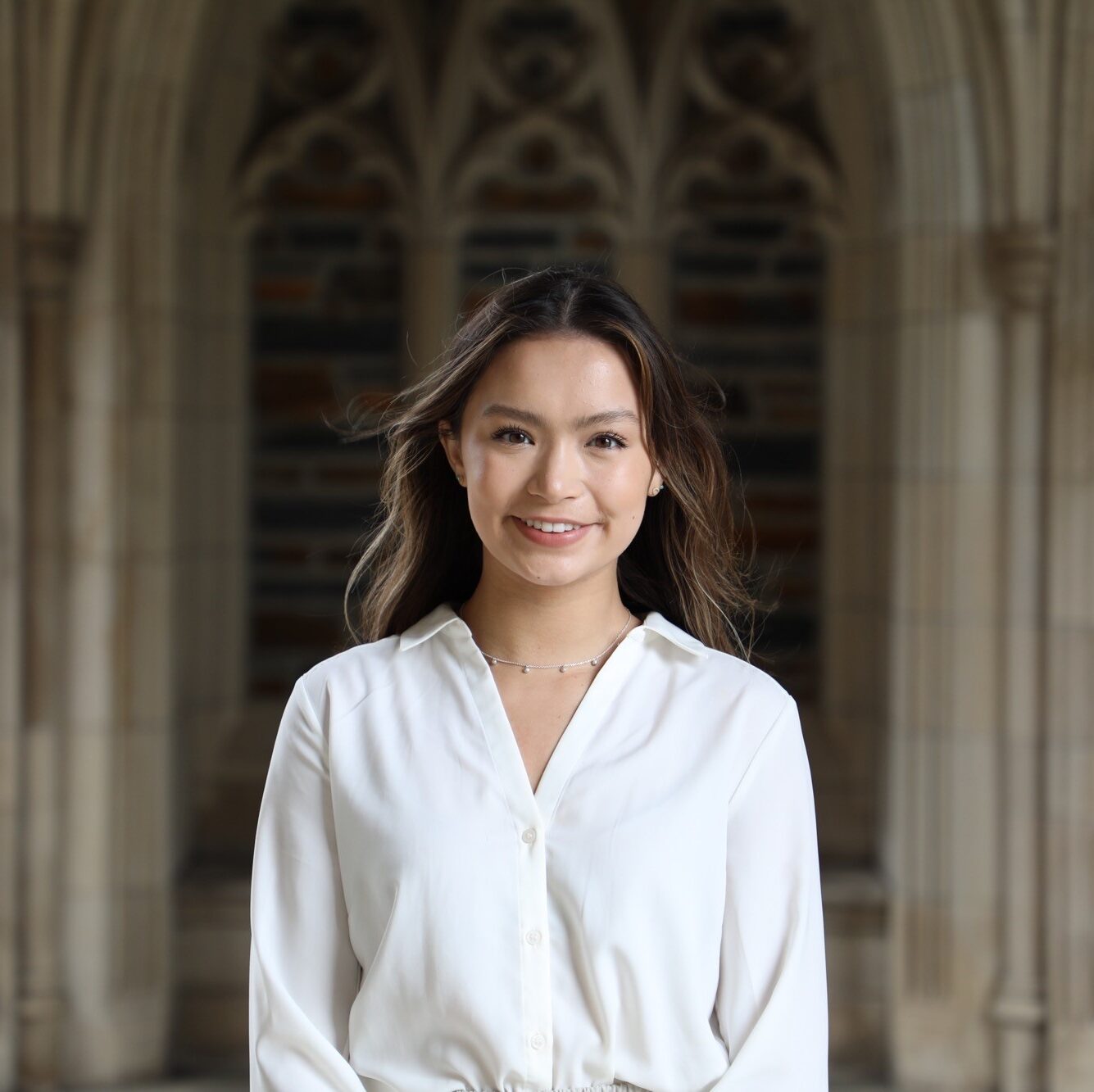
2nd Place Winner
Chloe Nguyen (PPS ‘24) for “Competition to Debate:
Evolving for Political Discourse and Democracy”
This piece follows my evolution from being a competitive dancer to a debater and how this process has shaped my perspective on conducting political debates and discussions in our increasingly polarized political climate. It calls for a revolution in political discourse away from cancel culture and towards constructive conversations to promote the best solutions to the world's most pressing problems. Fundamentally, it is evidence that we can change how we conduct our democracy: away from polarization and towards harmony.
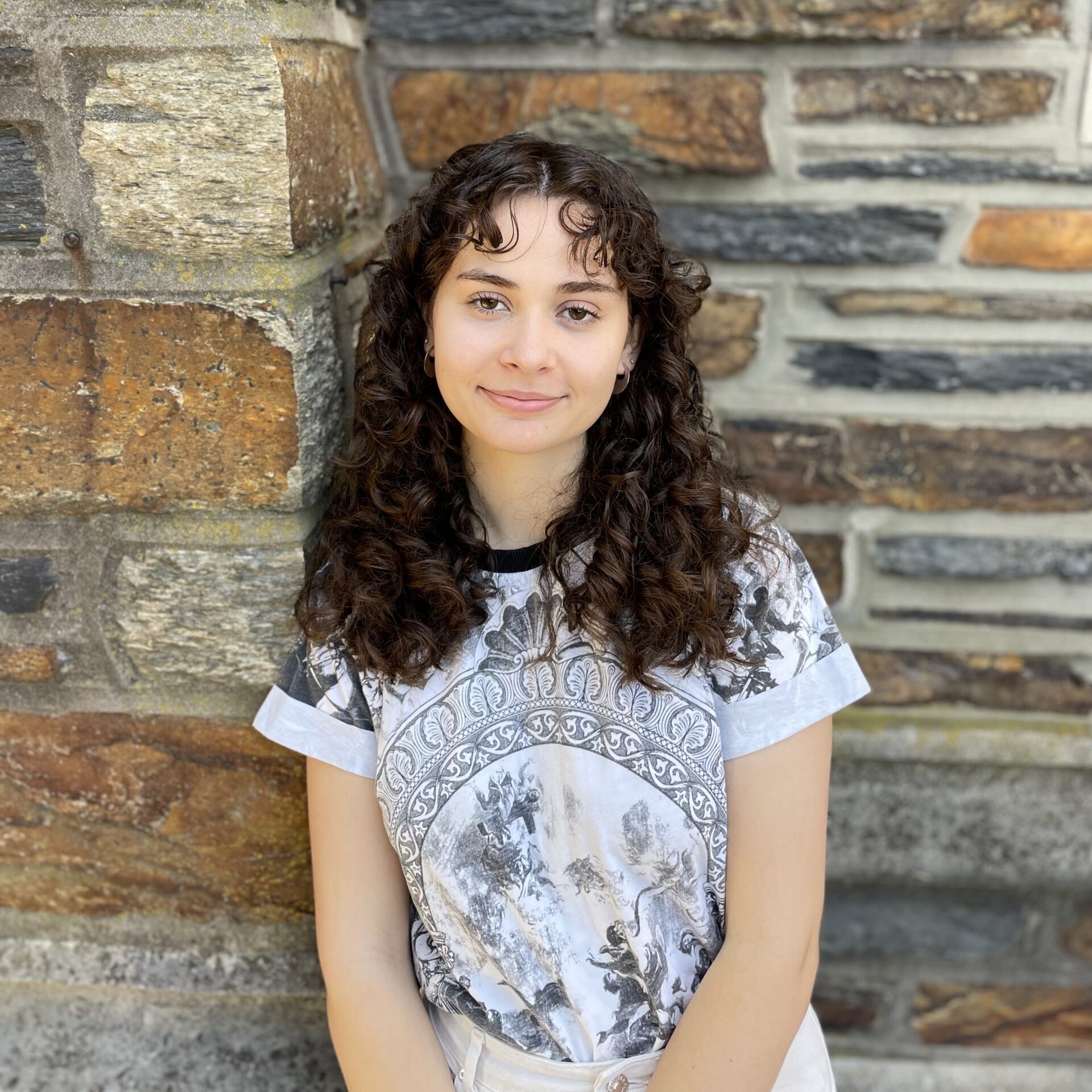
3rd Place Winner
Manon Fuchs (PPS ‘24) for “Dear Democracy,”
I outline hypothetical diary entries to democracy through the years. It would be dishonest for me to outline my relationship with democracy as anything but imperfect. Thus, I document my engagement with democracy from the age of nine to nineteen. In this ten year span, democracy entered, left, and re-entered my good graces. Through this piece, I intend to show that discourse is important to engage with democracy. But only though an individual’s will and effort can they build a strong relationship with democratic institutions. Democracy bleeds into each stage of our lives—but whether it flourishes or withers away depends on our discourse with it.
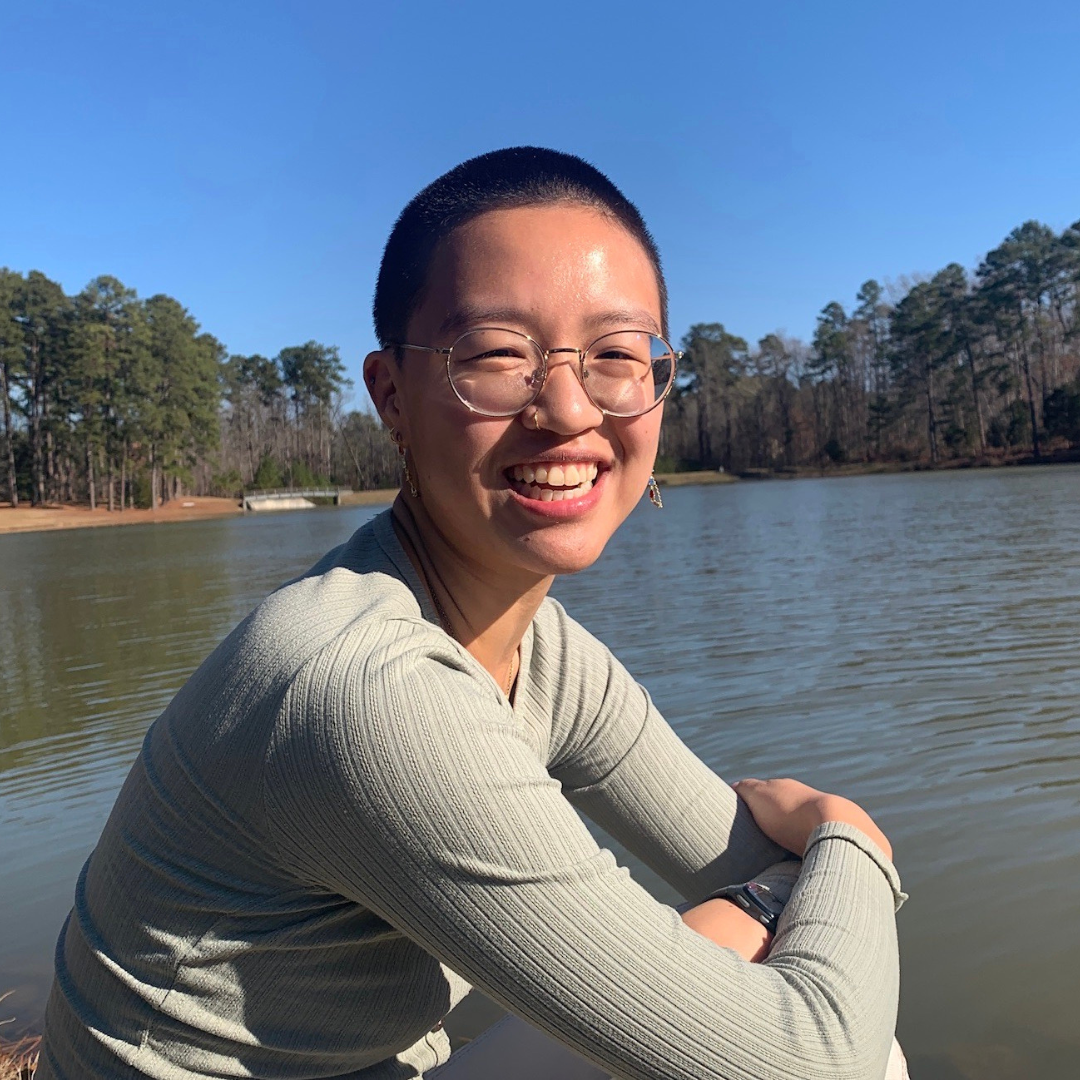
4th Place Winner
Katherine Gan (‘22) for “whose hands & whose labor”
I am thinking about "Discourse for Democracy" in the context of COVID-19 and labor. COVID-19 has certainly shed light on who is allowed to participate in the "Discourse for Democracy," for low-income people of color are often excluded or neglected in policy decisions. There is often little acknowledgment of the labor (especially in service) that makes an upper-class lifestyle and "push back to normal" even possible. This poem aims to highlight the labor that makes a fine dining experience in a restaurant possible; what would our country and nation look like if service jobs and labor were valued, particularly during the pandemic (nurses, teachers, bussers/waiters, etc).
IA Art Competition Finalists
Performing Arts Category

1st Place Winner
Guss Gress (PPS ‘25) for “I Have Multiple”
When I think of unity across political lines, I think of my aunt. Just last week, we had a long talk in which we disagreed on a lot of topics, ranging from guns to the provocative content presented in Duke’s recent production of Me Too Monologues, which I performed in and which she attended. Listening to her opinions helped me understand her more, and in spite of our sharp political differences, I had never felt closer to my aunt. Our conversation got deep, and political, when we started discussing the Me Too show, a piece of art. Good art inspires thought, dialogue, and more art; so it makes sense that our subsequent conversation inspired me to write the piece I’m presenting to you, I Have Multiple. This conversation, which I depict in the piece, demonstrated how a discourse for democracy can be a discourse for family, and a discourse with family can be a discourse for democracy.

2nd Place Winner
Jason Kreinberg (‘24) for “Hooks on American String”
Despite America’s many ideological rifts, the sustained belief in a collective soul is the principal reason for the success of the American democratic experiment. For over 200 years, cleavages have threatened to tear us apart, yet the ability to look past the partisan has always triumphed. Unique in the world, as a country founded completely on an ideal, the United States doesn’t experience the double-edged sword of ethnic, racial, historical, and geographical ties. In such an intangible society, our ability to feel connection to each other is of paramount importance. Unfortunately, this ability to find common ground is dangerously close to the point of no return. In the past two decades, identity politics, the internet, malicious actors, and a breakdown of our once robust institutions have widened the divide between Americans, breaking our shared links and polarizing a once united country. No longer can we empathize with the shared humanity of our political opponents and politics has clouded our ability to socialize. This context laid the stage for my internship with a Congressional campaign in the 2020 election, as I began the campaign with no comprehension of how the other half of the country lives. I villainized the other, viewing them as irrational, non-human, and distinctly un-American. Yet, through forcing myself to interact with these people, I realized that we are not as different as I once thought. Despite the challenges, the collective American soul is not dead; by looking deep enough, we always find shared values. The only way to fix American politics is through rebuilding empathy with discourse, no matter how difficult it may seem.

3rd Place Winner
Kelly Padalino (‘25) for “The World I Wish to See”
This piece was choreographed to Amanda Gorman's Inaugural Poem which she gave on the steps on the Capitol building days after the January 6th riot. It was that moment of the insurrection where our democracy truly began to unfold because our divisions became too strong to maintain any system of order. Gorman's poem takes us on a tour of the current political landscape, while the movements are meant to reflect the emotions and discourse that revealed themselves on January 6th. This piece is meant to be a reminder of our past, but also a call for a better future, one with less polarization and a prevailing democracy.


